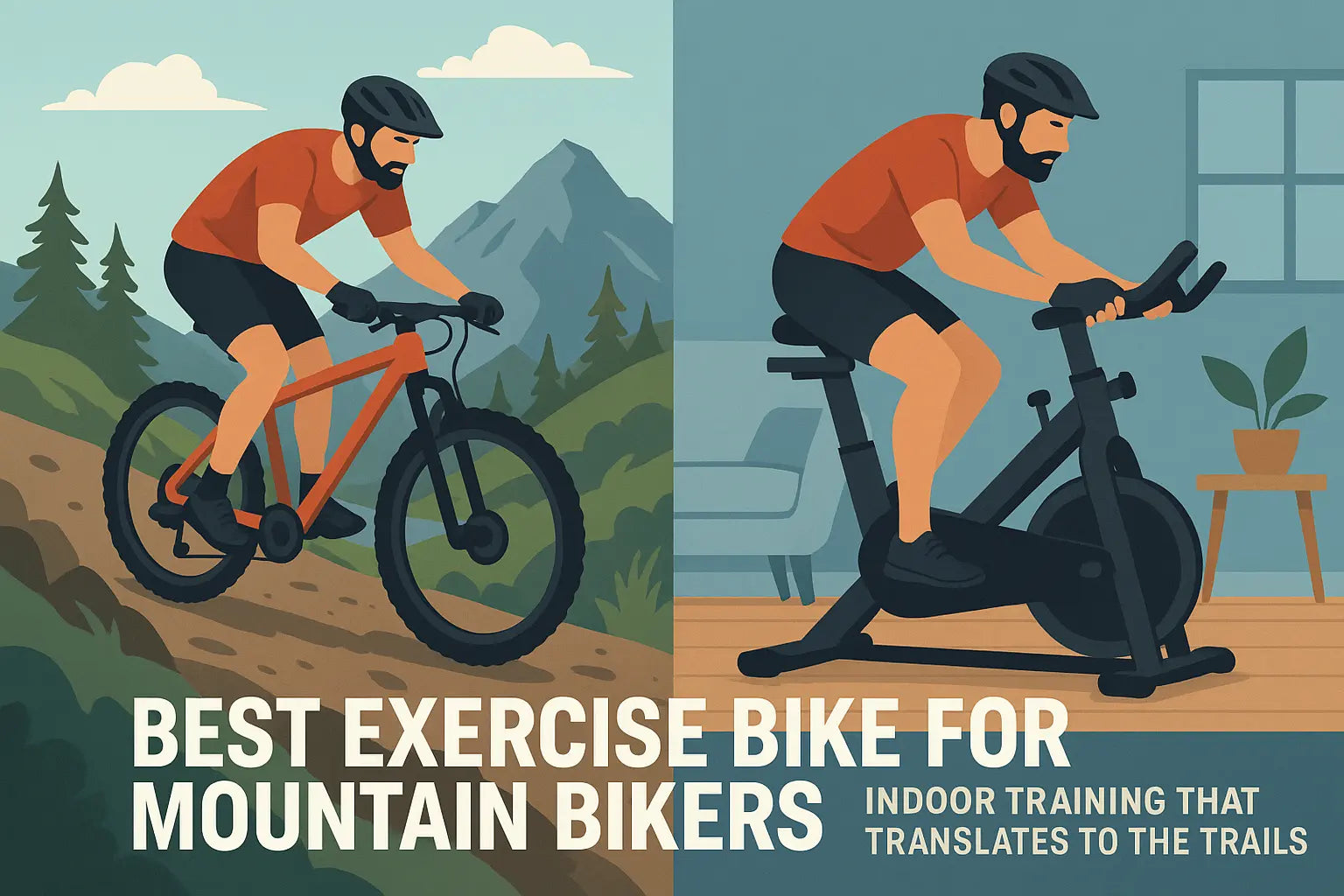Garage Gyms - Everything You Need To Know Recumbent Bike
Latest Articles
-

Best Stationary Recumbent Exercise Bikes for Lazy But Committed People
Let’s face it—most people don’t love exercising. And if you’re someone who avoids sweat-drenched high-intensity workouts, you’re not alone. The good news? You don’t have...
-

What is a Recumbent Exercise Bike?
A recumbent exercise bike is a type of stationary bike designed with a reclined seating position. Instead of leaning forward as you would on a...
-

Best Stationary Bike for Triathlon Training: A Complete Guide
Triathlon is one of the most demanding endurance sports, combining swimming, cycling, and running into a single grueling event. To succeed, athletes must build a...
-

Best Exercise Bike for Mountain Bikers
In this article, we’ll break down the best exercise bike options for mountain bikers, compare their features, explain how they support different training goals, and...
-

Best Bike for Lower Back Pain: Indoor and Outdoor Options Compared
In this article, we will compare the best bikes for lower back pain, covering both indoor exercise bikes and outdoor bicycles. Understanding bike fit and...
-

Which Exercise Bike Is Better for Weight Loss?
Losing weight is about creating a sustainable calorie deficit, and the type of cardio equipment you choose can make a big difference in how quickly...
-

What are the disadvantages of a recumbent bike?
The disadvantages of a recumbent bike include burning fewer calories per minute, providing minimal upper body engagement, taking up more floor space, and being less...
-

Is Recumbent Bike Good for Cardio?
A recumbent exercise bike offers a smooth, low-impact workout that effectively raises your heart rate, improving cardiovascular health, lung capacity, and overall endurance without putting...
-

Who Should Use a Recumbent Bike?
A recumbent bike is a great fit for older adults, beginners, people with knee, hip, or back issues, overweight individuals, or anyone seeking a comfortable,...
-

What's a Magnetic Recumbent Exercise Bike?
As more people turn to home workouts for convenience, privacy, and safety, the demand for quiet, efficient, and low-maintenance exercise equipment has never been higher....
-

The Best Daily Companion: Recumbent Stationary Bike for Seniors
More Than Just Exercise—A New Daily Ritual When most people think of fitness equipment, they imagine intense workouts, dripping sweat, and strict routines. But for...
-

The Benefits of Elliptical Recumbent Bike
In the pursuit of health, we often focus on physical transformation: losing weight, improving cardiovascular endurance, and building muscle. But what if the same exercise...
-

Recumbent Bike Meaning: What It Really Means for Your Fitness Journey
So, what is the true recumbent bike meaning? A recumbent bike is a stationary exercise bike where the rider sits in a reclined position with...
-

Best Home Recumbent Bike: The Perfect Gift for Your Parents
In a world where we constantly search for meaningful gifts that improve the lives of our loved ones, it’s easy to overlook the power of...
-

Recumbent Bike with Moving Arms: Benefits, Users, and Top Models
In the ever-evolving world of fitness equipment, the recumbent bike with moving arms has emerged as a game-changer. This hybrid exercise machine not only offers...















